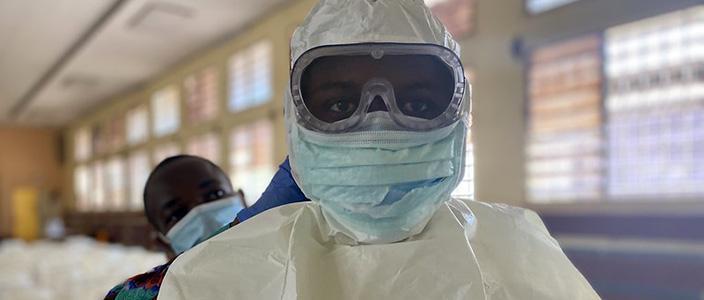EU Allocates €200,000 in Humanitarian Aid to Support Uganda's Response to the Sudan Ebola virus Outbreak

In response to the recent outbreak of the Sudan Ebola virus in Uganda, the European Union has allocated €200,000 in emergency humanitarian aid to support the country's efforts in containing the outbreak. The funding aims to support the country in mitigating the spread of the deadly virus.
An outbreak of the Sudan Strain of the Ebola virus was declared in Uganda on 30 January 2025. The EU funding will bolster the efforts of the Ugandan Red Cross Society (URCS) in delivering much-needed relief including coordination, risk communication, surveillance and contact tracing, emergency medical services, psychosocial support, safe burials, and hygiene promotion.
The emergency response project will run for an initial four months, covering a 42-day monitoring period after the last confirmed case and an additional 90-day post-outbreak surveillance period to prevent further transmission. The project is expected to continue until the end of June 2025 and aims to reach 520,000 people in the eastern and central regions of the country. The funding is part of the EU’s overall contribution to the Disaster Response Emergency Fund (DREF) of the International Federation of Red Cross and Red Crescent Societies (IFRC).
Uganda is currently experiencing its eighth Ebola outbreak. The most recent previous outbreak of the Sudan Ebola virus occurred in Mubende district in 2022.
Background
The European Union together with its Member States is the world's leading donor of humanitarian aid. Relief assistance is an expression of European solidarity towards people in need around the world. It aims to save lives, prevent and alleviate human suffering, and safeguard the integrity and human dignity of populations affected by natural disasters and human-made crises.
Through its department responsible for European Civil Protection and Humanitarian Aid Operations, the European Union helps millions of victims of conflicts and disasters every year. Headquartered in Brussels and with a global network of field offices, the EU assists to the most vulnerable people, based on humanitarian needs.
The European Commission has signed a €14.5 million humanitarian contribution agreement with the International Federation of Red Cross and Red Crescent Societies (IFRC) to support the Federation's Disaster Response Emergency Fund (DREF). Funds from the DREF are mainly allocated to “small-scale” disasters – those that do not give rise to a formal international appeal.
The Disaster Response Emergency Fund was established in 1979 and is supported by contributions from donors. Each time a National Red Cross or Red Crescent Society needs immediate financial support to respond to a disaster, it can request funds from the DREF. For small-scale disasters, the IFRC allocates grants from the Fund, which can then be replenished by the donors. The contribution agreement between the IFRC and ECHO enables the latter to replenish the DREF for agreed operations (that fit in with its humanitarian mandate) up to a total of €14.5 million.
CONTACT DETAILS
Peter Biro, Regional Information Officer for the Great Lakes, East & Southern Africa, European Civil Protection and Humanitarian Aid Operations (ECHO): peter.biro@echofield.eu.
